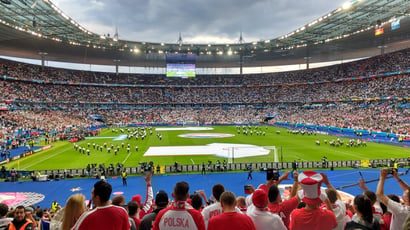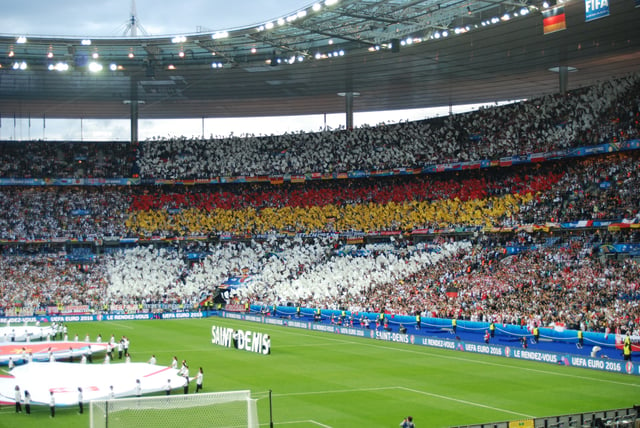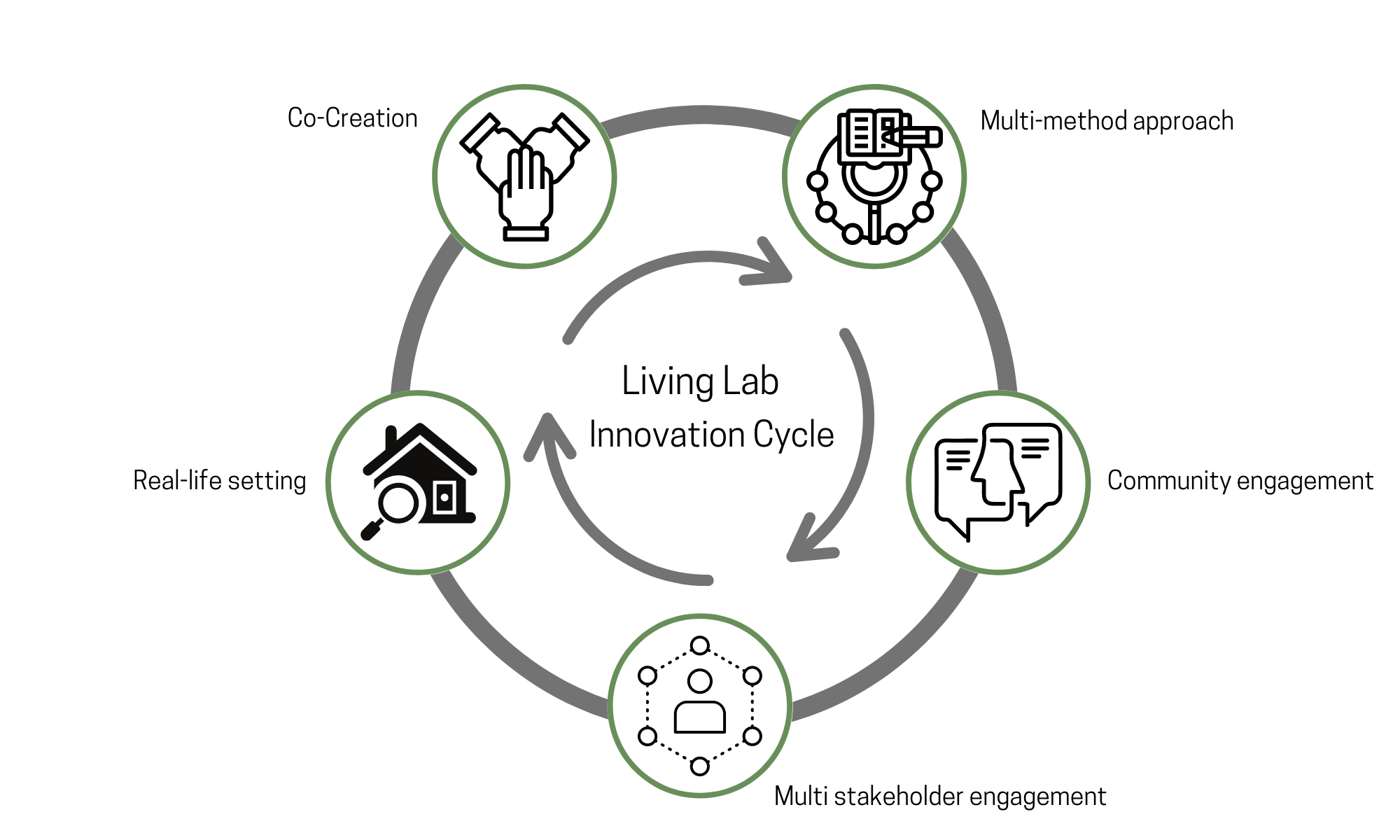International sporting events like the World Cup and the Olympics provide intriguing examples of the complexity and situated-nature of culture and heritage as people from all walks of life reveal, (re) create, adopt and adapt to some form of unique and shared identity, even if temporarily. This situated-ness is what illustrates one of the most substantial challenges for organizations and governments alike as they wrestle with complexity in their mission.

This past week we celebrated our 149th birthday: Happy Canada Day! Shortly afterward, our neighbours to the south celebrated
their birthday, called 4th of July and Independence Day. The latter title is something that former UKIP leader and advocate for the Brexit Leave campaign, Nigel Farage, proclaimed the UK should adopt in light of the UK's narrow vote to secede from Europe. To the Leave campaign, being apart and away from Europe is independence. For many others, it is that connection to the other countries that creates the ability to have both independence and community. But this is less about Brexit and more about what lay behind it: a quest for identity based on a sense of shared culture and heritage and the (perceived) ability to assert that independently.
Countries and nations are strange beasts. They are both real and fictitious imaginations of human beings to organize people, places and (sometimes) things in ways that are both useful at times and harmful at others. John Lennon implored us to imagine there were no countries and that there would be "nothing to kill or die for" as a result. A look at the environmental and conservation challenges facing our planet has inspired people like Michael Quinn Patton to begin looking Blue Marble Evaluation as a means of encouraging us to go beyond the boundaries imposed by the nation state to look more deeply at tackling challenges facing our planet that transnational and have no consideration for our created borders.
It could be argued that, aside from borders (which can be arbitrarily drawn, although the effects of such drawing is far from arbitrary), what defines a nation is its culture and heritage. All one has to do is witness how the world changes when major international sporting events take place and how individuals who may have a citizenship or residency in one country suddenly transform into someone from another by donning a jersey, raising a flag or chanting a cheer.
And to complicate matters, this is often done without leaving one identity behind, but putting on another as well or even creating a hybrid. This is what makes culture -- national, organizational or community -- so interesting and also so challenging to deal with. It is what keeps governments on their toes and organizations on their heels.
History, geography, time
At present the European football championships (the Euros) are concluding in France and as a fan of 'the beautiful game' I find myself confronting these challenges of culture and heritage head-on when I consider supporting a team. Most people I know pick a team based on where they came from, but that turns out not to be so simple for many of us.
To begin, my family is Canadian through many generations. My mothers' parents arrived from Germany and Romania when they were very young at the start of the 20th century. My fathers' family has roots in England and Norway (via the United States) that go back into the 18th and 19th centuries. If I was to pick a side based on family connection to a nation, who's colours should I wear?
One way to determine that might be the time away from the country-of-origin as a means of assessing weight to a particular nationality. In that case, should I pick Germany and Romania because they are more recent in my family past (and thus, the tie might be stronger?), or Norway or England? But then, there is that bit about family having come from Europe through the United States, so should I be rooting for the USA (assuming they were involved in the Euros for a moment)?
If we were to look at Germany and Romania, that's got to be more straightforward, right? Well, the Germany my grandfather was born into in the early 1900's was barely 30 years, as it had been pulled together in 1871 from many independently run 'micro-states' which formed from an earlier dissolution of more than 500 states nearly 70 years before. About that same time Romania had become unified, separated from the Ottoman Empire and then reformed as a Kingdom all within the last 50 years of the 1800's. It was another 'new' country too. These weren't the old countries that many suggest -- or they were -- or they were something else.
While the administrative configuration of these countries was new, the cultures and heritage of those who were in or out or back in the country had been long shared. All one needs to do is consider the enormous social, economic, religious and geographic complexities unleashed by treaties like the one at Versailles in 1918 which substantially altered the global post-colonial landscape that had been established by European powers, or those that led to the "creation" of Iraq and in 1948 "created" the state of Israel. In the latter examples, there are cultures thousands of years old who were well-established long before ever being declared a country.
The point is that what we call a country is a perfect example of a systems thinking maxim that points to the importance of understanding a system from where one sits within it. In the case of looking to defining a country, we need to look at many things (vantage points in a system) and that includes time, history. It means we need to consider 4 dimensions of spacetime to really understand complex conditions like countries, nations, identities and cultures.
What we call a community (or country or town or...) is something that has multiple boundaries and many different interpretations and values by those who live in and with them.
The elsewhere home
I know someone who identifies as a die-hard Irish even if it was her great, great grandparents that came to Canada and she's never lived there. She have more of an Irish identity than others I know who were born in Ireland and have only been here for a few years and are now permanent residents. So, who of the two lays a better claim to "being Irish"?
These arguments are not just philosophical, but illustrative of the challenges we face in creating community and identity in the modern world. For those intending to change that world -- on whatever matter -- these issues of identity are important. People come together for many reasons and a sense of shared culture and heritage are two of the most powerful, yet also nebulous markers. Culture might be expressed through food, rituals, practices of faith, symbols (e.g, badges, jerseys, flags, slogans and cheers) and fashion.
And despite the protestations of many who might disagree, there is no such thing as a pure culture; it's always remixed, repurposed and re-imagined. Consider the Icelandic football team that performed better than anyone imagined and progressed to the quarter finals of this years' Euros. Their fans have developed a Viking war chant as part of their repertoire of cheers (seen below) . And while the Vikings were certainly part of the heritage of Iceland, it's the cultural identity that Iceland's citizens gravitate to because of that shared (and constructed) heritage, even if the Vikings never played football.
Iceland returns home: https://www.youtube.com/watch?v=mav2kkvakGY
And to see how quickly cultural practices spread, consider this same 'viking' chant was performed brilliantly with supporters from my hometown football (in Toronto, Canada) just days after the video above was shot (see below). There are no vikings in Canada -- even though they were our first visitors from Europe.
Toronto FC > : https://www.youtube.com/watch?v=v2C_FEQPStA
Indeed, this cultural 'home' is almost always elsewhere as well as 'here'.
4-D sports and other models
If we are to be effective at making positive contributions to influencing social systems, we can learn a lot from sport and the way it serves to facilitate and amplify culture -- positively and negatively. From the chants and cheers to the banners, scarves, jerseys, hats and costumes that people wear to games and as signs of support or affiliation provide us with ready-made labs to help us understand how culture and heritage are manifested.
Stories are told, a shared narrative emerges about a club or country related to a sport, and icons are created. These become myths, but also sources for inspiration and, if not carefully considered, sources for social exclusion and violence. We can create the same conditions in our communities and organizations to different degrees if we pay attention. At the same time, we can learn how identities can be shared and mixed. To come back to my story of support, I actually was interested in three teams in this tournament for different reasons. England, partly because of history, but more because my favourite club team was well-represented on them, I have many friends from there, and have been to the UK many times and really like it there. Italy, not because I have any familial connection to them, but because I like the country and my best friend and I share that love and found ourselves over the years watching the games together and that shared cheer just added to the strong bond we have.
Lastly, and (for particularly for the current state of the tournament), Germany.
Some might say that I can't support multiple countries. Some might suggest that the logic behind any of these choices is flawed. But that's the thing with culture, heritage and the way we bring these together. We create the logic that justifies why we are or are not part of a group. We attach the meaning to the flag, the colours, the music the tastes -- what social theorist Pierre Bourdieu critiqued as markers of distinction (PDF).
So with that, come on Germany -- go win the Euros! (And if not, you're just a socially, temporally and culturally constructed entity that
provides me with a sense of affiliation to certain members of my family, fond memories of eating German-inspired food and speaking German to my Grandmother, a respect for the way that you play the sport and the approach you take to developing players, and a connection to thousands of strangers worldwide who will, for the moment, dress like me and cheer when I do. And that is as good of a reason to support them -- or any country -- as any).
May we all find ways to create this in the various 'teams' (communities, organizations, countries) we find ourselves sharing.

A version of this post appeared on censemaking.com.
Photo credits: Germany vs Poland 0-0 by George Groutas used under Creative Commons License via Flickr. Thanks for sharing George; hope you had fun at the Euros!





